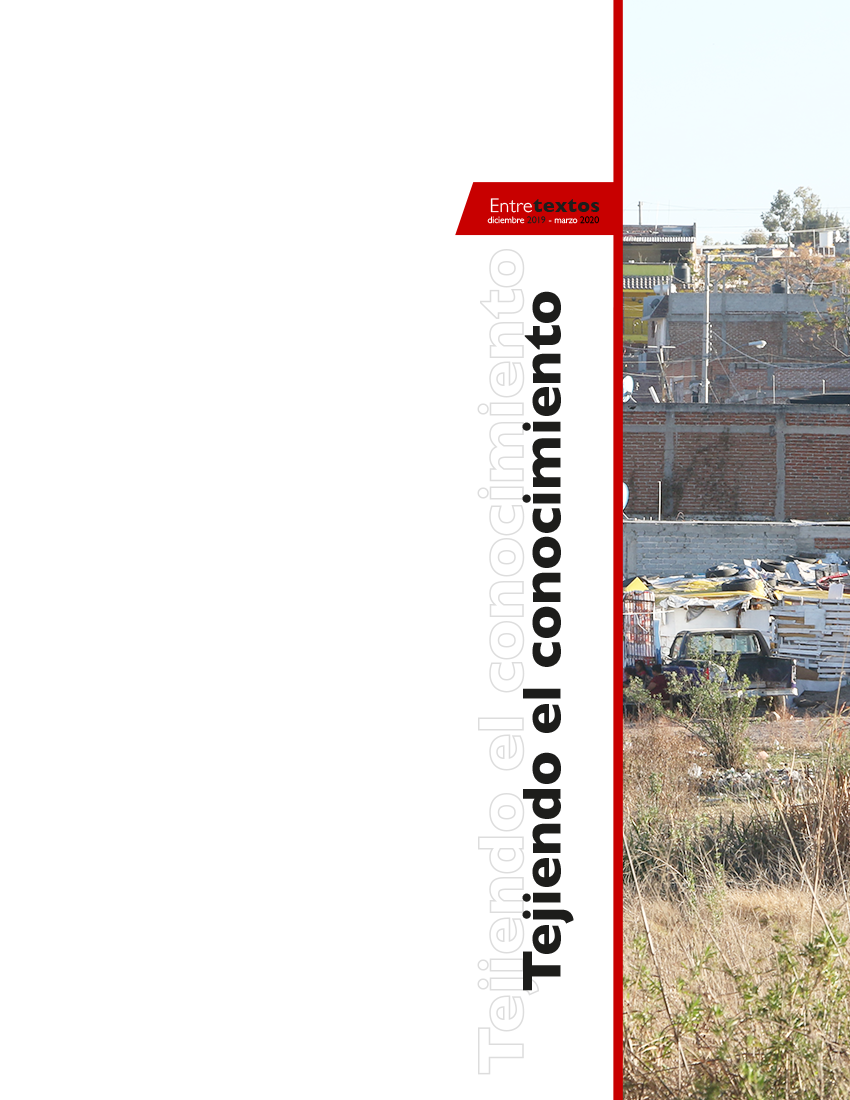Reporte de investigación
Presencia de disfagia y estado nutricio de los adultos mayores con demencia, que asisten al Instituto de la Memoria
DOI:
https://doi.org/10.59057/iberoleon.20075316.201933115Palabras clave:
demencia, disfagia, estado nutricio, adulto mayor, grado de demenciaResumen
En México se ha reportado un 8 % de prevalencia de demencia en la población de adultos mayores. Esta enfermedad afecta no sólo la calidad de vida de aquellas personas que la padecen, sino también la de sus familiares porque impacta en lo económico, psicológico, fisiológico y social. Los pacientes con demencia tienen una alta probabilidad de desarrollar disfagia, pero los que padecen la enfermedad de Alzheimer tiene entre 50 y 75 % más de riesgo; sin mencionar que también pueden desnutrirse porque su estado nutricional se altera con la edad. En este artículo se presenta metodología y resultados de un estudio descriptivo sobre la disfagia y el estado nutricio de pacientes del Instituto de la Memoria con el fin de utilizar la información generada para proponer estrategias sólidas para la prevención y el cuidado alimenticio del adulto mayor con demencia.
Descargas
Citas
Baena, M. y Molina, G. (noviembre, 2016). Abordaje de la disfagia en enfermos de Alzheimer. Nutrición Hospitalaria, 33(3), pp. 739-748. Recuperado el 9 de septiembre de 2019, de http://scielo.isciii.es/scielo.php?script=sci_arttext&pid=S0212-16112016000300034.
Boccardi, V., Ruggiero, C., Patriti, A. y Marano, L. (febrero, 2016). Diagnostic Assessment and Management of Dysphagia in Patients with Alzheimer’s disease. Journal of Alzheimer’s Disease, 50(4), pp. 947-55. Doi: 10.3233/JAD-150931.
Bunn, F., Burn, A. M., Goodman, C., Rait, G., Norton, S., Robinson, L., Schoeman, J. y Brayne, C. (octubre, 2014). Comorbidity and dementia: a scoping review of literature. BMC Medicine, 12(192). Recuperado el 23 de septiembre de 2019, de https://www.ncbi.nlm.nih.gov/pmc/articles/PMC4229610/.
Clavé, P., Arreola, V., Romea, M., Medina, L., Palomara, E. y Serra-Prat, M. (2008). Accuracy of the volumen-viscocity swallow test for clinical screening of oropharygeal dysphagia and aspiration. Clinical Nutrition, 27(6), pp. 806-815. Doi: 10.1016/j.clnu.2008.06.011.
Cunningham, E. L., McGuinness, B., Herron, B. y Passmore, A. P. (mayo, 2015). Dementia. Ulster Medical Journal, 84(2), pp. 79-87. Recuperado el 24 de septiembre de 2019, de https://www.ncbi.nlm.nih.gov/pmc/articles/PMC4488926/.
Eglseer, D., Halfens, R. J. G., Schols, J. M. G. A. y Lohrmann, C. (marzo, 2018). Dysphagia in Hospitalized Older Patients: Associated Factors and Nutritional Interventions. The Journal of Nutrition, Health and Aging, 22(1), pp. 103-110. Doi: 10.1007/s12603-017-0928-x.
Guillén-Sola, A., Marco, E., Martínez-Orfila, J., Donaire, M. F., Depolo, M., Duarte, E. y Escalada, F. (diciembre, 2013). Usefulness of the volumen-viscosity swallow test for screening dysphagia subacute stroke patients in rehabilitation income. NeuroRehabilitation, 33(4), pp. 631-638. Doi: 10.3233/NRE-130997.
Instituto de Nutrición Nestlé. (s. f.). Guía para rellenar el Formulario Mini Nutritional Assessment-Short Form (MNA® SF). Recuperado el 23 de septiembre de 2019, de http://www.mna-elderly.com/mna_forms.html.
Kai, K., Hashimoto, M., Amano, K., Tanaka, H., Fukuhara, R., e Ikeda, M. (agosto, 2015). Relationship between Eating Disturbance and Dementia Severity in Patients with Alzheimer’s Disease. PloS One, 10(8). Doi: 10.1371/journal.pone.0133666.
Keller, H. (enero, 2016). Improving food intake in persons living with dementia. Annals of the New York Academy of Sciences, 1367(1), pp. 3-11. Recuperado el 18 de septiembre de 2019, de https://nyaspubs.onlinelibrary.wiley.com/doi/abs/10.1111/nyas.12997.
Leslie, W. y Hankey, C. (julio, 2015). Aging, Nutritional and Health. Healthcare (Basel) , 3(3), pp. 648-658. Doi: 10.3390/healthcare3030648.
Michel, A., Vérin, E., Gbaguidi, X., Druesne, L., Roca, F. y Chassagne, P. (septiembre, 2018). Oropharyngeal Dysphagia in Community-Dwelling Older Patients with Dementia: Prevalence and Relationship with Geriatric Parameters. Journal of American Medical Directors Assocation, 19(9), pp. 770-774. Doi: 10.1016/j.jamda.2018.04.011.
Payne, M. y Morley, J. E. (2018). Dysphagia, dementia and frailty. The Journal of Nutrition, Health and Aging, 22(5), pp. 562-565. Recuperado el 12 de septiembre de 2019, de https://link.springer.com/content/pdf/10.1007/s12603-018-1033-5.pdf.
Paranji, S., Paranji, N., Wright, S. y Chandra, S. (noviembre, 2016). A Nationwide Study of the Impact of Dysphagia on Hospital Outcomes Among Patients with Dementia. American Journal of Alzheimer’s Disease & Other Dementias, 32(1) , pp. 5-11. Recuperado el 18 de septiembre de 2019, de http://journals.sagepub.com/doi/abs/10.1177/1533317516673464?url_ver=Z39.88-2003&rfr_id=ori:rid:crossref.org&rfr_dat=cr_pub%3dpubmed.
Robinson, L., Tang, E. y Taylo, J. P. (junio, 2015). Dementia: timely diagnosis and early intervention. BJM (Clinical research ed.), 350. Recuperado el 23 de septiembre de 2019, de https://www.ncbi.nlm.nih.gov/pmc/articles/PMC4468575/.
Rofes, L., Arreola, V. y Clavé, P. (2012). The Volume-Viscosity Test for Clinical Screening of Dysphagia and Aspiration. En Cichero, J. y Clavé, P. (Eds.), Stepping Stones to Living Well with Dysphagia (pp. 33-42). Recuperado el 21 de septiembre de 2019, de http://pdfs.semanticscholar.org/fc8f/39b496a1031344880c0b2d95139f465351ce.pdf.
Sura, L., Madhavan, A., Carnaby, G. y Crary, M. A. (julio, 2017). Dysphagia in the elderly: management and nutritional considerations. Clinical Intervetions in Aging, 7, pp. 287-298. Recuperado el 20 de septiembre de 2019, de https://www.ncbi.nlm.nih.gov/pmc/articles/PMC3426263/.
Takeuchi, K., Aida, J., Ito, K., Furuta, M., Yamashita, Y. y Osaka, K. (abril, 2014). Nutritional status and dysphagia risk among community-dwelling frail older adults. The Journal of Nutrition, Health and Agin, 18(4), pp. 352-357. Doi: 10.1007/s12603-014-0025-3.
Tombini, M., Sicari, M., Pellegrino, G., Ursini, F., Insardá, F. y Di-Lazzaro, V. (octubre, 2016). Nutritional Status of Patients with Alzheimer’s Disease and Their Caregivers. Journal of Alzheimer’s Disease, 54(4), pp. 1619-1627. Doi: 10.3233/JAD-160261.
Yildiz, D., Buyukkoyuncu, N., Kilic, A. K., Tolgay, E. N. y Tufan, F. (2015). Malnutrition is associated wih dementia severity and geriatric syndromes in patients with Alzheimer disease. Turkish Journal of Medical Sciences, 45(5), pp. 1078-1081. Recuperado el 26 de septiembre de 2019, de http://journals.tubitak.gov.tr/medical/issues/sag-15-45-5/sag-45-5-14-1406-76.pdf.

Descargas
Publicado
Cómo citar
Número
Sección
Licencia
Derechos de autor 2019 Entretextos

Esta obra está bajo una licencia internacional Creative Commons Atribución-NoComercial 4.0.




